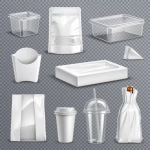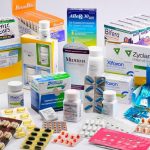The U.S. cosmetic packaging market is undergoing a significant transformation, fueled by rising consumer demand for sustainability, innovation in materials, and technological integration. As of 2025 and moving into 2026, the U.S. remains a key player in the global beauty packaging landscape, driven by strong domestic consumption, e-commerce growth, and advances in automated packaging solutions.
📊 Market Size and Growth Overview
-
The global cosmetic packaging market was valued at USD 36.16 billion in 2024 and is projected to reach USD 56.15 billion by 2034, registering a CAGR of 4.5% from 2025 to 2034.
-
The U.S. market continues to be a major contributor within North America, which is the second-largest regional market, after Asia-Pacific.
-
The cosmetic packaging machinery market globally was valued at USD 4.93 billion in 2024 and is expected to grow at a CAGR of 5.83%, reaching USD 8.69 billion by 2034.
🌿 Key 2025–2026 Trends in U.S. Cosmetic Packaging
1. Sustainable & Circular Packaging
-
The U.S. is witnessing a surge in the use of PCR plastics, bamboo, aluminum, and glass-based containers.
-
In May 2025, U.S.-based nonprofit Pact Collective launched NewMatter™ HDPE sheets made from post-consumer cosmetic waste, promoting circularity in beauty packaging.
-
Consumer demand for refillable packaging systems is projected to rise by over 15% YoY through 2026.
2. Smart & Anti-Counterfeit Packaging
-
Anti-counterfeit solutions such as QR codes, NFC chips, and holograms are being embedded into packaging to protect brand authenticity.
-
The anti-counterfeit cosmetic packaging market is projected to grow from USD 37.06 billion in 2024 to USD 87.73 billion by 2034, with a CAGR of 9.0%.
-
U.S. cosmetics companies are integrating these technologies to comply with rising regulatory and consumer safety standards.
3. Rise of Cosmetic Tubes and Bottles
-
Tubes are gaining traction in skincare and haircare packaging, expected to grow from USD 3.14 billion in 2025 to USD 4.68 billion by 2034, at a CAGR of 4.61%.
-
Bottles continue to lead the U.S. market by volume, dominating categories such as body lotions, serums, and liquid foundations.
4. Machinery and Automation Surge
-
Automation is being integrated into packaging lines through AI-based vision systems, smart fillers, and robotics.
-
Technologies like SEA Vision’s A-Eye 360° inspection systems are being adopted to ensure quality in lipstick and mascara packaging.
-
U.S. brands are heavily investing in form-fill-seal, capping, and labeling machines to increase speed and reduce labor costs.
🛒 Impact of E-Commerce & Premiumization
-
As of 2025, 27% of cosmetic packaging demand in the U.S. is generated via e-commerce channels.
-
Luxury cosmetic packaging, driven by prestige skincare and fragrance brands, is expected to grow from USD 16.84 billion in 2024 to USD 27.96 billion by 2034, at a CAGR of 5.2%.
-
The “Instagrammable unboxing experience” has become a key marketing strategy, influencing secondary packaging investments in the U.S.
📌 2025–2026 Key U.S. Packaging Statistics
| Category | 2024–2026 Value & Forecast |
|---|---|
| U.S. contribution to global market | Significant, within North America (2nd-largest region) |
| Cosmetic packaging machinery market | USD 4.93B (2024) → USD 8.69B (2034) @ 5.83% CAGR |
| Anti-counterfeit cosmetic packaging | USD 37.06B (2024) → USD 87.73B (2034) @ 9.0% CAGR |
| Tube packaging | USD 3.14B (2025) → USD 4.68B (2034) @ 4.61% CAGR |
| Luxury cosmetic packaging (global) | USD 16.84B (2024) → USD 27.96B (2034) @ 5.2% CAGR |
| E-commerce packaging share (U.S.) | Over 27% of total packaging market (2025) |
🔮 Market Outlook for 2026 and Beyond
-
Recyclability mandates and consumer pressure will push brands to replace single-use plastic with biodegradable and refillable alternatives.
-
AI-powered packaging automation will increase operational efficiency by up to 15%.
-
Innovations in touchless dispensing systems, airless packaging, and biodegradable labels will gain traction.
-
U.S. regulatory bodies may introduce stricter labeling and sustainability compliance rules by late 2026.





